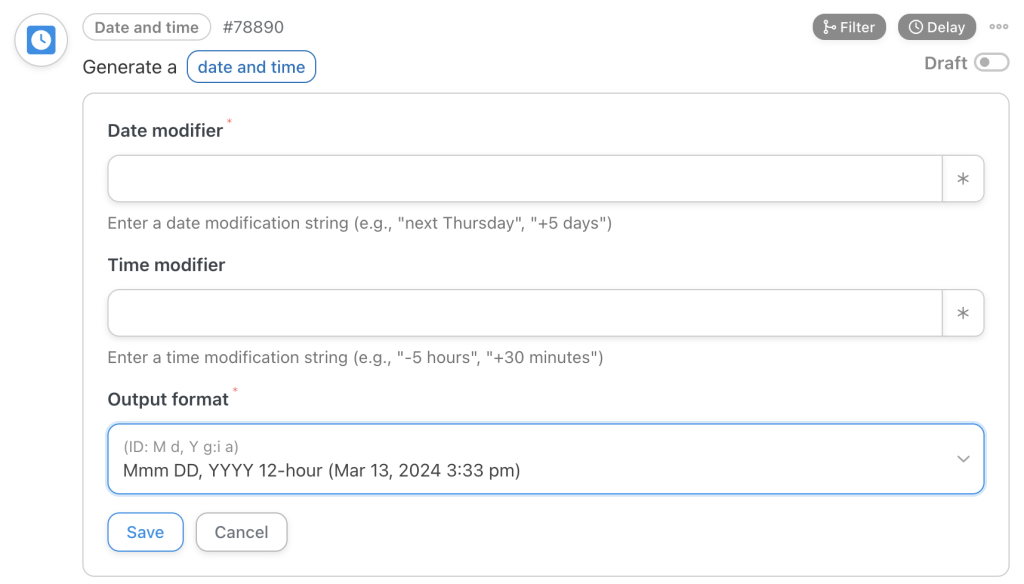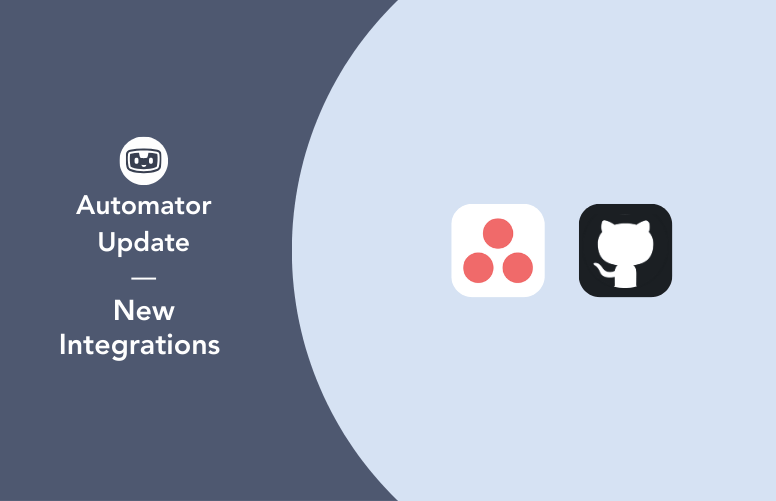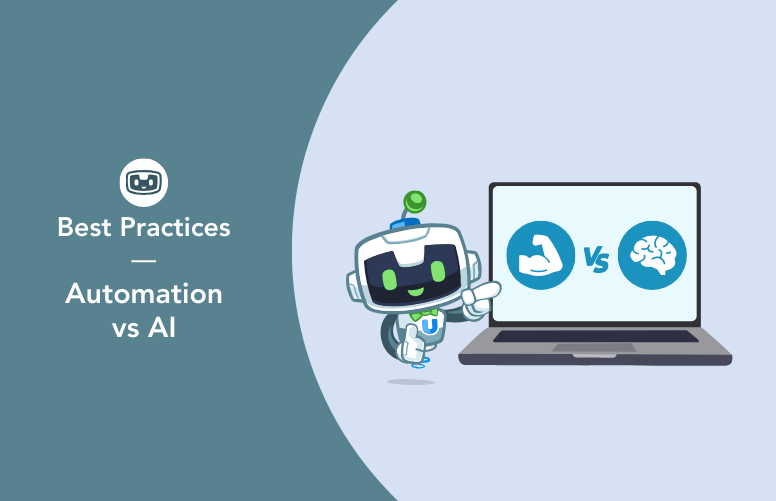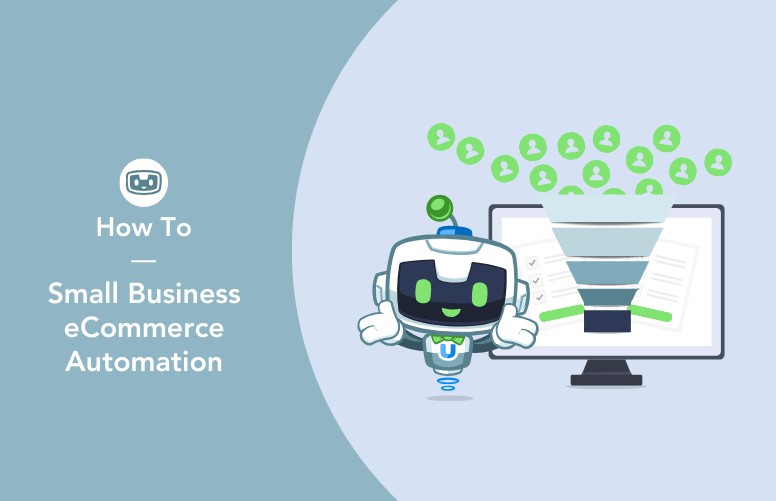Make remote work as seamless as sitting in an office. Automator's 6.9 release includes new…
New integrations: QR Code, Generator, Date & Time and more
Uncanny Automator Pro 5.6 is a huge release with multiple new integrations, changes to existing integrations, big new features, and 20 new triggers and actions.
Delays based on a custom value
The headline new feature in Automator Pro 5.6 is the ability to delay actions based on tokens and values you set in plain language. In earlier versions of Automator, you could either delay an action based on a specific number of days, minutes, months, etc., or you could define an action to run at a specific date and time. There was no way to pass in a token, however, nor a way to define delays with text descriptions (like “the next day at 4 PM” or “the following Friday at 7 AM”).
With the new custom value support for delays, you can do those things. You can pass in a value as a token, so if a token has a value of “4”, you could say “4 days” (where the value “4” is from a token). And you can include text instructions, like “2pm the following Friday”. The flexibility of the new feature is pretty immense, and there are even filters you can use to define your own terms and what they mean. As such, we highly recommend you check out the new custom scheduling Knowledge Base article to get more familiar with what’s supported.
New integration: QR Code
If you’ve ever wanted to generate QR codes in Uncanny Automator recipes, the new QR Code integration is exactly what you need. It introduces a single new action:
- Generate a QR code
There is, of course, a lot more to it. You can encode any data you want into the QR code, whether it’s a link, text, or anything else. Beyond that, you can control the size of the QR code image that’s generated, colours, a logo, margins, image format and more.
Of course, the action is just to generate a QR code image; don’t forget to include an action in your recipe to also do something with the image, whether it’s to include it in a notification, store it somewhere, present it on a certificate, or just log the QR code URL in another application.
New integration: Date and time
To complement the support above for custom delays and converting text descriptions to dates, there’s a new integration called “Date and time” that offers the following actions:
- Generate a date
- Generate a date and time
- Generate a date and time based on a date
What this integration can do is take a text description, like “+10 days” (for 10 days from now) or “next Sunday” and convert that into the equivalent date/time in whatever output format you want to use. So, if you want the date 20 days from when a recipe is triggered and you want it output in a format like Mmm DD, YYYY, you can do that.
There is a lot supported here, and to really appreciate what’s possible, we highly recommend checking out the Knowledge Base article.
New integration: Generator
With the new Generator integration, we’re introducing a new way that more advanced users can generate data with these new actions:
- Generate a hash
- Generate a nonce
- Generate a random email
Want to hash a string using md4 (or a variety of other hash functions) and output a hashed string? Well, now you can, along with nonces and random email addresses in your recipes.
The new nonce action is also related to a new action in WordPress Core: Verify a nonce. With it, you can pass in a nonce, enter the action associated with the nonce, and output (as a token or in the logs) whether the verification was successful or unsuccessful.
New(ish) integrations: Magic Button and Run Code
As a result of user feedback, and for improved discovery, we have moved the Magic Button and Magic Link triggers out of the Automator Core integration and into their own dedicated integration. Similarly, actions related to running code from the Automator Core integration have also been migrated to a new, focused integration called “Run Code“.
Tokens for WooCommerce order custom fields
If you’re a Woo user and have ever wanted to include order data in a recipe that wasn’t triggered by something in the WooCommerce integration, a new action for “Get order details by an order ID” allows it. Basically you can feed an order ID into this action, then it will return all order details that you would expect from a Woo order-based trigger.
wpDiscuz
Introduced in the Uncanny Automator 5.6 release, Automator Pro adds several new tools for wpDiscuz users:
- New trigger: A guest comment is submitted on a user’s post
- New trigger: A guest comment on a user’s post is approved
- New action: Add a comment to a post
These allow a variety of compelling use cases, like automatically responding with a GPT-fuelled message on a user’s first comment, notifying a user via SMS when a comment is made on their post, etc.
SureCart
As a result of numerous user requests, we have added multiple new triggers to our SureCart integration:
- A refund for a product is issued to a customer
- A user renews a subscription to a product
- A user’s subscription to a product is cancelled
With these additions, maybe a refund sends out an exit survey and removes a user from a mailing list, or maybe a successful renewal adds credits to a user’s account that they can redeem for future purchases.
New WooCommerce post loop filters
There are 3 new filters in Automator Pro 5.6 for Woo users:
- An order ID is between a start ID and an end ID
- An order has or does not have a status
- An order was placed between a start date and an end date
Want to generate an ad hoc report in airtable for a certain date range and pass in all order details for that segment? Now you can (combined with Run Now and Post Loops, of course). Or maybe you just need to target and update all orders in Processing status. Whatever it is, it’s now much easier to segment Woo orders for bulk operations.
New conditions
LearnDash users, now you can run actions based on whether or not the active user is or is not the leader of a group. Have a communication you only want to get out to Group Leaders of specific groups? No problem. Or maybe certain notifications or actions should only happen if the user is a Group Leader of at least 1 group.
In WordPress Core, there’s a new condition for “The user does not have a specific role”. While we had a condition for users having a role, setting this up on sites with dozens of roles when you just wanted to exclude a single role could be painful.
Other updates
The above list is already huge, but the updates don’t stop there.
The BuddyBoss action to create a group now supports targeting specific group types.
For the LearnDash condition related to a user being or not being a member of a group, there’s now an “any group” option, so you can target users in 1 or more groups or not in any groups at all.
Woo Subscriptions gains a new action to extend the user’s next subscription renewal date to a specific product variation of a specific product by a number of days.
That covers the highlights of the Uncanny Automator Pro 5.6 release. We hope you find the new additions useful!







You guys created I think the best wordpress plugin in existence. <3
Thanks Alessio, we think so too! 🙂
Great work Ryan. I would love to see videos stepping through how to implement QR codes and the options for use in business.
Perfect, thank you!